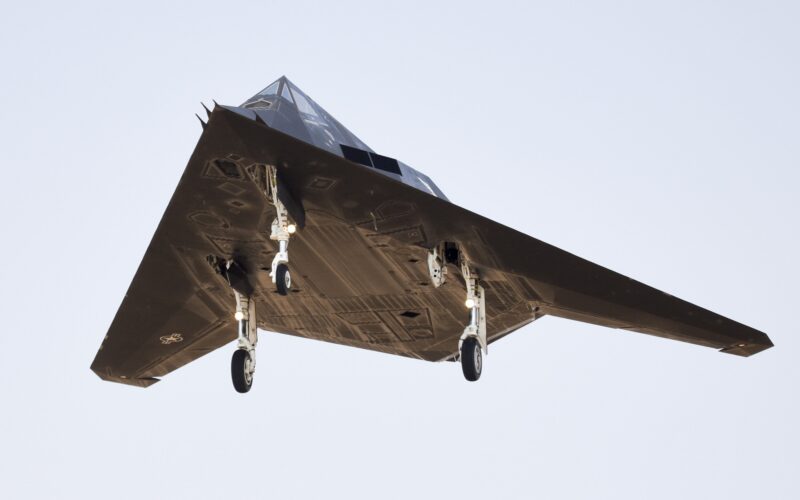The US Air Force (USAF) is on track to certify the iconic Lockheed F-117 Nighthawk for aerial refueling on its latest tanker, the Boeing KC-46, by the end of March 2024.
Despite the F-117 fleet’s retirement from active service, the USAF is moving forward with plans to integrate it into the KC-46’s refueling capabilities.
Andrew Hunter, the USAF’s acquisition boss, disclosed the inclusion of the F-117 as a receiver for aerial refueling during a testimony to the House armed services projection forces subcommittee on March 12, 2024, as first reported by Aviation Week.
The F-117 Nighthawk, the first operational combat aircraft designed with stealth as its main characteristic, was retired in 2008. However, a select number of these aircraft have been retained for various purposes, including training exercises and the development of new air combat tactics. With less than 45 examples still in service, the USAF intends to maintain these assets, with maintenance contracts extending until 2034 to preserve their stealth characteristics.
KC-46 Pegasus certification continues
In addition to the F-117A Nighthawk, the KC-46A Pegasus must also obtain certification for performing in-flight refueling of the E-2D Hawkeye airborne early warning (AEW) aircraft and the upcoming B-21 Raider stealth strategic bomber.
The A-10 ground attack aircraft, which is set to retire in the next three to five years, has failed its certification test. This aircraft, along with several others in the USAF’s fleet, was unable to generate enough thrust to connect the boom’s nozzle to the aircraft’s receptacle. According to Hunter, the USAF still has enough Boeing KC-135 Stratotankers operational to service the A-10 until its retirement.
Finally, the new version of the KC-46’s Remote Vision System, RVS 2.0, was expected to launch in 2024 before being deferred to 2025, is likely to face another delay and launch in 2026 instead. In 2019, shortly after the tanker’s first delivery to the USAF, the RVS developed by Rockwell Collins was found to be unreliable in certain lighting conditions and exhibited motion discrepancies with real life.

